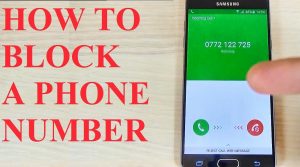Dating is difficult, especially if you’re no longer in your twenties. Online dating through websites or social media is the way most relationships start these days, but it’s also a way in which daters can be scammed. People that have lost money through online dating schemes are often reluctant to report the fraud for several reasons: they are embarrassed, heartbroken, and think there is no chance of getting the money back.
Big Money
Scam artists rely on their new partners being blinded by love, so they don’t ask many questions. Savvy people fall prey to dating scams all the time, simply because the scammers are often smart. That’s why online romance scams are the biggest form of fraud online. Marketwatch reports that online dating fraud has quadrupled over the past four years, going from $33 million to $143 million. Most people have become wise to phishing and identity theft, so fraudsters don’t often ask for credit card or bank account information – at least not at first. The requests start out small. The money is always sent through gift cards, wire transfers, cash apps or in bitcoins, so it is impossible to trace.
Red Flags
There are many warning signs or “red flags” that can be picked up if you know what to look for in a conversation or dating profile.
The profile picture often looks like someone you recognize, probably a celebrity. There is little personal information on the dating profile. When the person is asked to take the online relationship to the next level, such as a face-t-face meeting, there is always an excuse as to why it can’t happen.
People looking for love online often have common factors that make them good targets. Scammers can pick up on those traits and move in for the kill.
Dating Profiles
Below are some examples of common profiles of scammers and their victims:
The Scammer
Online dating scams often start outside the United States. According to HuffPost, most are based in Nigeria and Ghana and Nigeria, but there has been an increase in dating scams coming from West African immigrants located in Britain, Canada, and Malaysia. Some are career criminals, but there has been a rise in the number of poor college students. The scam can easily turn into a business, with scammers receiving hundreds of thousands of dollars from one victim. However, it is most likely that the scammer has multiple “romances” at one time.
The Victim
Romance scams can target anyone. Barb Sluppik, who runs the watchdog site RomanceScams.org, says she’s worked with “men and women of all ages – doctors and lawyers, CEOs of companies, people from the entertainment industry – who you’d never think in a million years would fall for these scams but do.” Those most likely to be targeted include:
- Middle-aged. Most scam artists target people who are middle-aged. It may be that the daters have come out of a long-term relationship and are lonely. Females are also the most targeted, although men can also be victims.
- Women. Scammers target women, especially those that have been divorced or widowed. These victims tend to be emotionally vulnerable.
- People in Crisis. A 2013 report from the Federal Trade Commission (FTC) showed that people who have suffered a crisis in the past two years are more than two and a half times as likely to be victims of a romance or other scam. Examples include divorce, death of a loved one, medical crisis or loss of a job.
- Abuse Survivors. A study by University of Leicester psychologist Monica Whitty shows that many victims of romance scams have been previously involved in abusive relationship. They had become accustomed to living in denial about the abusive behavior, which allows them to turn a blind eye to any red flags from the scammer.
- Previous Victims. Romance scammers like to target previous victims. Scams attract previous victims, even if the outcome of past incidents was harmful.
- Addictive Personalities. Scammers love people with addictive personalities because they get attached to other people quickly. If you have this type of behavior, be extra careful with strangers who profess their love right away.
- Impulse-driven. If you act on impulse without thinking things through, you could be a big target for a romance scam.
- Trusting. Scammers trick people who trust others immediately.
Profile Pictures
Fake profiles on online dating sites or social media rarely have pictures. A small percentage may have a legitimate reason for not having a picture, such as a high-profile job or some disfigurement, but it’s probably that the poster may be not who he claims to be.
If there is a profile pic that looks over done or professional, chances are it’s not real. Use a reverse image search app to uncover the user’s true identity. Some of the most popular search engines include Google Reverse Image Search (Google Images) or TinEye. Upload the person’s picture into the app and search. Try more than one app to make sure that the picture isn’t located elsewhere on the internet. You may find it linked to other dating websites as well.
Getting Verified
The latest romance scam involves verification of your identity so that the other person feels safe. Some dating sites offer verification services, which can be a great help in weeding out the fraudsters. Many legitimate verification sites exist and are a great tool. Scammers have created sites similar to the real sites to trick people into giving personal information such as social security numbers.
How it Works
The scam artist asks the other person to click on a link to a real verification site, such as BeenVerified. However, the link is really to a third-party site that steals information and uses it or sells it to other scammers.
Protect Yourself
You can protect yourself from scams by meeting the person before giving them any information. If you exchange phone numbers, use a reverse phone search to find out if the number is real. If the other person makes an excuse about his or her identity, don’t believe it. You should also be suspicious if s/he is out of the country for any reason, even if it’s for work. Lastly, never send money for any reason. Scammers can be persuasive, even threatening. If that happens, end communication immediately.





